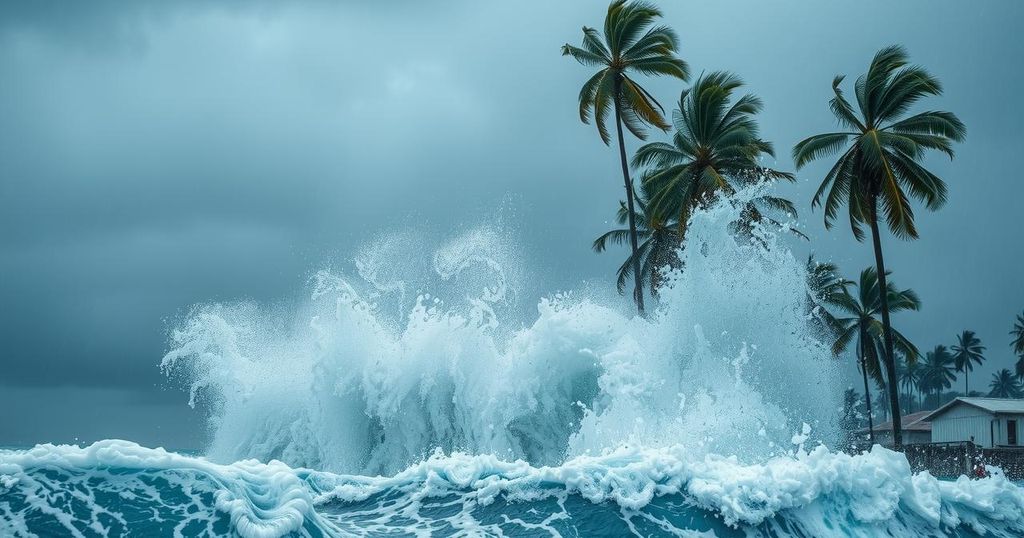Tropical Storm Dikeledi Brings Destruction to Mozambique After Madagascar Impact
Tropical Storm Dikeledi impacted northern Mozambique, causing fatalities in Madagascar and flooding in Mayotte. The storm is expected to bring heavy rainfall and dangerous winds, prompting urgent warnings and safety measures from authorities. Cyclones in this region have become more potent due to rising ocean temperatures, highlighting concerns over climate change.
Tropical Storm Dikeledi made landfall in northern Mozambique on Monday, causing widespread devastation after previously claiming at least three lives in Madagascar and resulting in flooding in Mayotte. The storm gained strength upon reaching Mozambique, specifically impacting the Nampula region with severe winds and heavy rainfall, as reported by Meteo-France. The storm follows the deadly Cyclone Chido, which swept through northern Mozambique in December 2022, leaving over 120 fatalities in its wake.
The National Institute of Meteorology in Mozambique issued urgent flood warnings for Dikeledi, predicting up to 200 millimeters (approximately eight inches) of rain in just 24 hours and winds reaching 180 kilometers (110 miles) per hour. In light of the imminent threat, President Filipe Nyusi urged affected residents to prioritize their safety by seeking shelter and gathering essential supplies.
In Madagascar, Dikeledi wreaked havoc over the weekend, resulting in three casualties as it impacted the northern region with ferocious winds and heavy rains. The National Office for Risk and Disaster Management in Madagascar confirmed these fatalities on Sunday. Furthermore, forecasts indicate that Madagascar may again be vulnerable to the storm, with potential repercussions expected along its southwest coast as Dikeledi continues its southward trajectory. Meteorological experts attribute the severity of cyclones during the November to March season to elevated surface water temperatures, nearly reaching 30 degrees Celsius (86 Fahrenheit), a phenomenon exacerbated by global warming, similarly observed in other oceanic regions.
The increasing intensity of tropical storms and cyclones in regions surrounding the Indian Ocean, particularly from November to March, has raised concerns among meteorologists and disaster management authorities. These storms pose significant threats to vulnerable populations, especially in Eastern Africa. Historical data indicate elevated fatalities and damage when such weather patterns intensify, correlating with rising sea temperatures and climate change. Previous storms, such as Cyclone Chido, have left lasting impacts, escalating the urgency of public safety measures during storm events.
In conclusion, Tropical Storm Dikeledi poses a serious threat to Mozambique, intensifying after causing fatalities in Madagascar and flooding in Mayotte. The meteorological predictions highlight the potential for significant rainfall and hazardous winds, prompting calls for immediate precautionary actions from residents. The increasing frequency and intensity of cyclones underscore the urgent need for awareness and preparedness to mitigate the impacts of climate change and extreme weather events.
Original Source: www.barrons.com




Post Comment